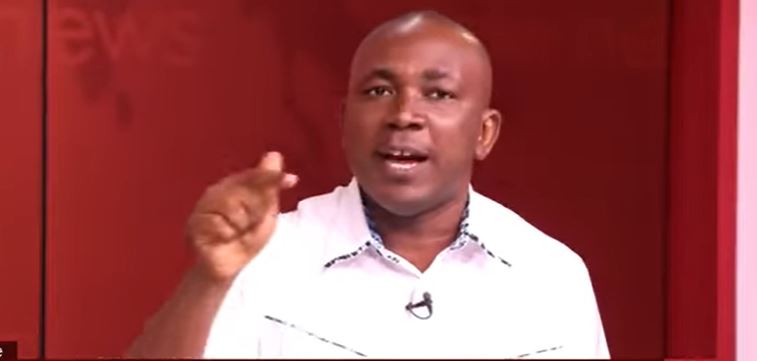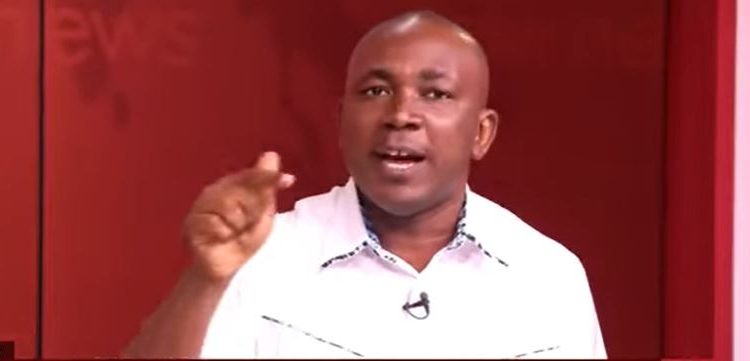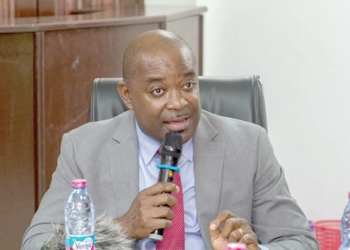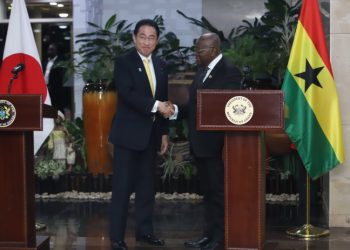
President John Dramani Mahama’s ambitious “24-Hour Economy” policy, recently launched with much fanfare, bears striking conceptual similarities to past national development blueprints, including the “Ghana Beyond Aid” agenda and the 2017 coordinated programme of social and economic policy.
This observation was critically articulated by Professor Bokpin, an economist, during an incisive discussion on JoyFM’s Newsfile on Saturday, July 5.
Professor Bokpin, who meticulously analysed the “24-Hour Economy” document in conjunction with previous national strategies and even Ghana’s numerous IMF-supported programmes, pointed out a significant lack of policy continuity in Ghana’s homegrown initiatives, contrasting it with the sustained implementation often seen in IMF programmes across different administrations.
[embedded content]“From conceptualisation to diagnosis, there isn’t much difference in this document and ‘Ghana Beyond Aid’ and then the coordinated programme of social and economic development; all of that, there isn’t much difference,” Professor Bokpin asserted.
He clarified that this observation was not to downplay the work put into the current document but rather to highlight the consistent identification of the same core issues across various administrations.
He drew a parallel to the New Patriotic Party’s (NPP) past efforts to transform Ghana’s “Guggisberg economy” – a colonial economic structure heavily reliant on primary commodity exports.
“It was essentially moving the economy from being dependent on primary commodities to more value added,” he explained.
Professor Bokpin noted that a broad consensus has always existed on the need for an “agricultural revolution”, a goal echoed in both the “24-Hour Economy” and “Ghana Beyond Aid” documents.
Professor Bokpin underscored that the fundamental challenges confronting Ghana’s economy, such as the struggle to transition from raw material export to value-added production, remain unchanged.
“When you are asked why Dr Kwame Nkrumah’s state-owned enterprises collapsed, the same issues that made it collapse. They are the same issues that confront us today. Right. So nothing is changing, right?” he observed.
He pointed out that despite efforts by successive governments, close to 80% of Ghana’s export earnings in the 1960s were from primary commodities, and even with the addition of oil and gas, the structure largely remains similar.
He cited explicit parallels between the two major policy documents: “If you take time to read Ghana Beyond Aid and you read this [24-Hour Economy], you will see great similarity. Look, they call it now with the Christening, ‘Grow 24’. In fact, under the Ghana Beyond Aid, they called it ‘Wiser Ghana’ and had five pillars: Wealthy Ghana, Inclusive Ghana, Sustainable Ghana, Empowered Ghana, and Resilient Ghana, and all of that.”
While acknowledging that the “24-Hour Economy” document offers a “bit more focus on big-scale intervention in terms of using the Volta Lake”, an area with significant untapped economic potential, Professor Bokpin raised critical concerns about implementation.
He strongly criticised the proposal to create a new “authority” or secretariat for the 24-Hour Economy, arguing that such moves typify the “politics” in development policy and lead to inefficient cost centres.
“We don’t need to create an authority for Ghana beyond a 24-hour economy,” he stressed, lamenting a consistent pattern since 1992 of detaching development policies from existing governmental structures. He cited examples like the National Health Insurance Authority, where “approximately 44% of the total allocation to them is spent on administration,” and COCOBOD, where “it’s possible that Cocoa has more V8 than Cocoa Beans.”
“We don’t need to even create a separate unit within the Ghana Police Service for 24-hour. It’s a mindset. This is a government programme. Everybody works with it,” he asserted, drawing a contrast with IMF-supported programmes that effectively utilise existing institutional frameworks.
He questioned the need for a separate secretariat to collect data when the Ghana Statistical Service already exists, advocating for infusing the policy within current ministries, departments, and agencies to minimise implementation costs and ensure continuity across political transitions.
Finally, Professor Bokpin raised questions about the document’s key performance indicators (KPIs) and their linkage to critical success factors.
He emphasised the importance of regular, transparent reviews, akin to those compelling government compliance with IMF programmes.
“There’s potential in this document. Just as you see, look, governance development is in our literature. The document – when you read it, you will smile for Ghana. Just as in the past, we can write,” he concluded.
However, he cautioned that the “costing hasn’t been done properly,” suggesting that the stated $4 billion budget is likely inadequate, especially given that the “Big Push” component alone requires $10 billion.
He reiterated that successful implementation hinges on broader market-driven conditions rather than isolated incentives and on fully integrating the policy within existing state machinery to ensure long-term sustainability.
DISCLAIMER: The Views, Comments, Opinions, Contributions and Statements made by Readers and Contributors on this platform do not necessarily represent the views or policy of Multimedia Group Limited.
Tags:
DISCLAIMER: The Views, Comments, Opinions, Contributions and Statements made by Readers and Contributors on this platform do not necessarily represent the views or policy of Multimedia Group Limited.
- President Commissions 36.5 Million Dollars Hospital In The Tain District
- You Will Not Go Free For Killing An Hard Working MP – Akufo-Addo To MP’s Killer
- I Will Lead You To Victory – Ato Forson Assures NDC Supporters
Visit Our Social Media for More




